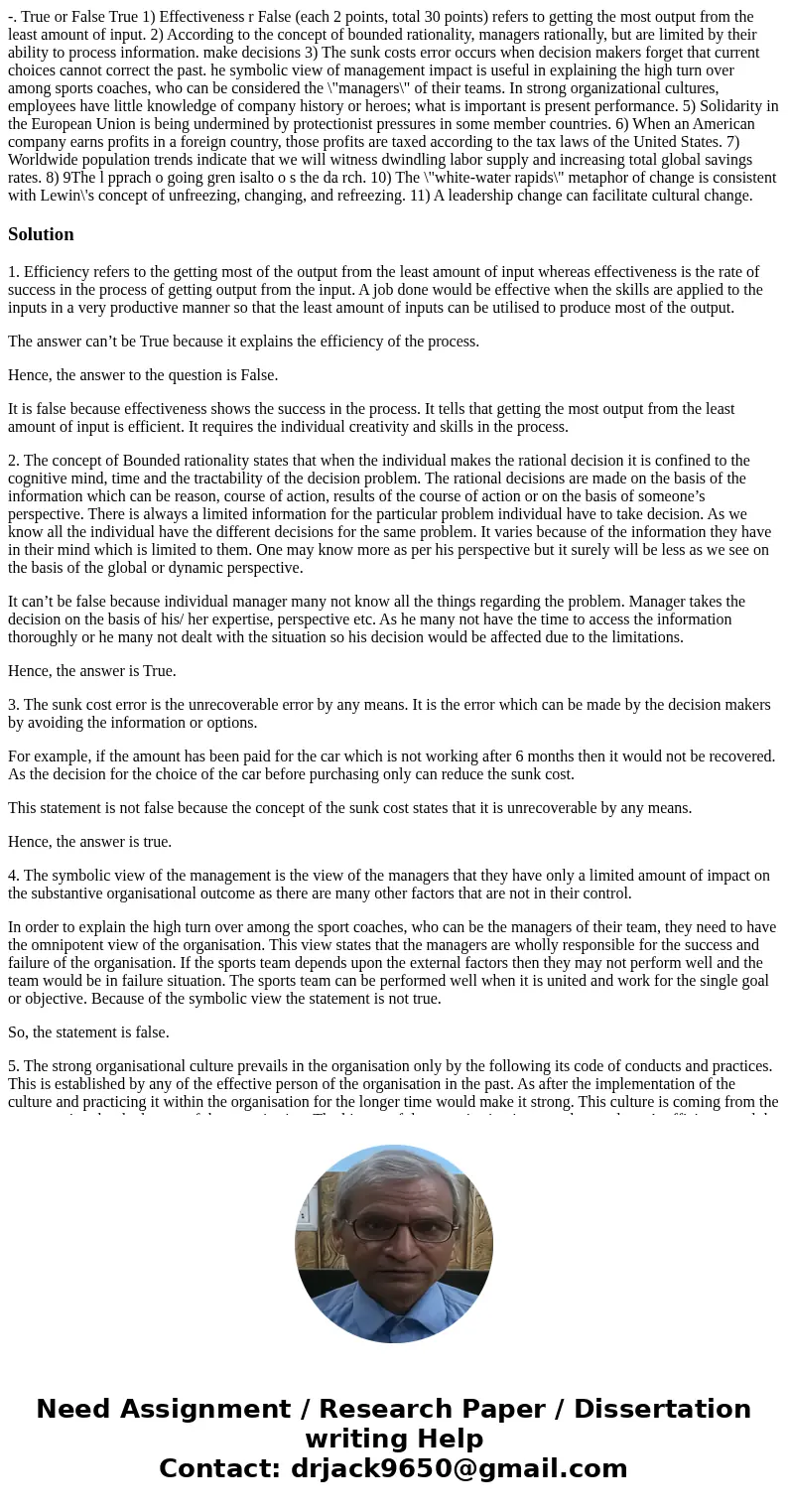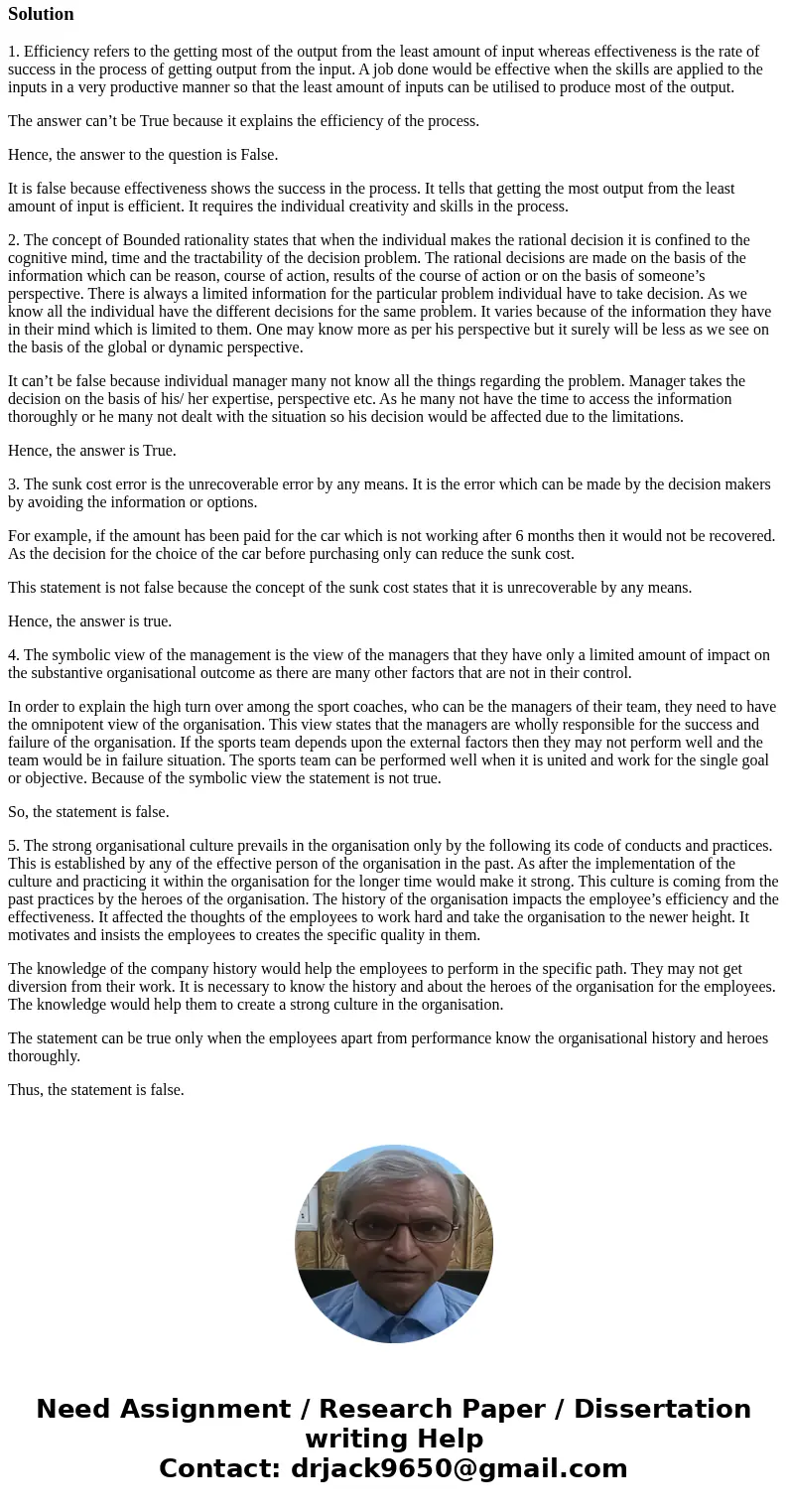True or False True 1 Effectiveness r False each 2 points to
Solution
1. Efficiency refers to the getting most of the output from the least amount of input whereas effectiveness is the rate of success in the process of getting output from the input. A job done would be effective when the skills are applied to the inputs in a very productive manner so that the least amount of inputs can be utilised to produce most of the output.
The answer can’t be True because it explains the efficiency of the process.
Hence, the answer to the question is False.
It is false because effectiveness shows the success in the process. It tells that getting the most output from the least amount of input is efficient. It requires the individual creativity and skills in the process.
2. The concept of Bounded rationality states that when the individual makes the rational decision it is confined to the cognitive mind, time and the tractability of the decision problem. The rational decisions are made on the basis of the information which can be reason, course of action, results of the course of action or on the basis of someone’s perspective. There is always a limited information for the particular problem individual have to take decision. As we know all the individual have the different decisions for the same problem. It varies because of the information they have in their mind which is limited to them. One may know more as per his perspective but it surely will be less as we see on the basis of the global or dynamic perspective.
It can’t be false because individual manager many not know all the things regarding the problem. Manager takes the decision on the basis of his/ her expertise, perspective etc. As he many not have the time to access the information thoroughly or he many not dealt with the situation so his decision would be affected due to the limitations.
Hence, the answer is True.
3. The sunk cost error is the unrecoverable error by any means. It is the error which can be made by the decision makers by avoiding the information or options.
For example, if the amount has been paid for the car which is not working after 6 months then it would not be recovered. As the decision for the choice of the car before purchasing only can reduce the sunk cost.
This statement is not false because the concept of the sunk cost states that it is unrecoverable by any means.
Hence, the answer is true.
4. The symbolic view of the management is the view of the managers that they have only a limited amount of impact on the substantive organisational outcome as there are many other factors that are not in their control.
In order to explain the high turn over among the sport coaches, who can be the managers of their team, they need to have the omnipotent view of the organisation. This view states that the managers are wholly responsible for the success and failure of the organisation. If the sports team depends upon the external factors then they may not perform well and the team would be in failure situation. The sports team can be performed well when it is united and work for the single goal or objective. Because of the symbolic view the statement is not true.
So, the statement is false.
5. The strong organisational culture prevails in the organisation only by the following its code of conducts and practices. This is established by any of the effective person of the organisation in the past. As after the implementation of the culture and practicing it within the organisation for the longer time would make it strong. This culture is coming from the past practices by the heroes of the organisation. The history of the organisation impacts the employee’s efficiency and the effectiveness. It affected the thoughts of the employees to work hard and take the organisation to the newer height. It motivates and insists the employees to creates the specific quality in them.
The knowledge of the company history would help the employees to perform in the specific path. They may not get diversion from their work. It is necessary to know the history and about the heroes of the organisation for the employees. The knowledge would help them to create a strong culture in the organisation.
The statement can be true only when the employees apart from performance know the organisational history and heroes thoroughly.
Thus, the statement is false.


 Homework Sourse
Homework Sourse